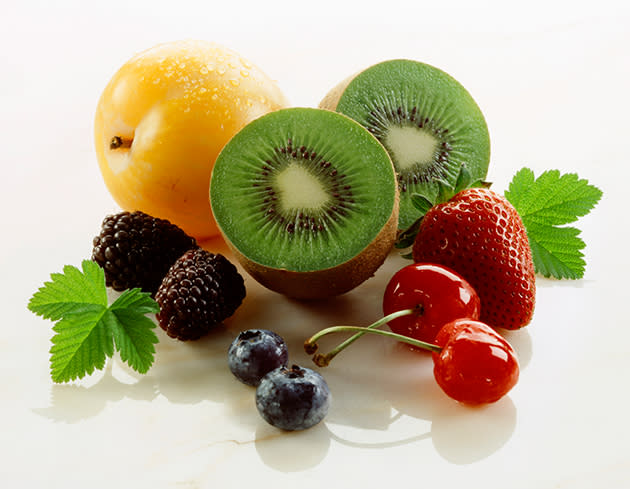 Fit to Post Health
Fit to Post HealthSo you want to be a vegetarian?

At Genesis Gym Singapore, there are some clients who, for ethical or religious reasons, prefer not to eat meat as part of their lifestyle. While there may be a small percentage of the population who can do well on a strict vegetarian or vegan diet (no animal products), the majority of us will need more of the nutrients found in animal products.
Before we continue, I would like readers to understand that while excess processed meat products are not a good choice, it is also very possible to be vegetarian and very unhealthy.
Simply put, avoiding meat by no means assures one of good health. The problem is that most vegetarians continue to include foods cooked in processed vegetable oil, and also eat processed flours and excessive amounts of sugars. These items can cause problems for anyone, vegetarian or not.
In addition here are the common nutrients that are missing in a vegetarian diet.
1. Fat soluble vitamins (A, D, E and K). These vitamins are not found in as large quantities, or in as readily usable forms in plant products. Animal products do a better job providing us with these vitamins.
2. Vitamin B12. This vitamin is critical for a process in the body known as "Methylation". A good ability to methylate results in your body being better at detoxification, digestion and even how your genes control cell multiplication. A bad ability to methylate can cause problems all over. B12 is found mostly in foods like beef, chicken, clams and mussels.
3. Zinc is also hard to find in plant products and is important for maintaining a good balance of testosterone vs estrogen.
4. Saturated fat. This is often mistakenly associated with bad cardiovascular health but in reality, natural sources of saturated fat such as butter and fat in meat products from healthy animals is critical for the formation of brain cells, sex hormones, and the lining of our nerves.
So what can you do if you want to be a vegetarian, yet at the same time maintain good health?
1. Take in animal by-products e.g. eggs, cheese, cream, butter etc. These tend to have decent amounts of saturated fat and the fat soluble vitamins.
2. Supplement with Zinc and a multivitamin with B12. Sorry there really isn't a plant product that has zinc in what I would consider a good enough amount. Read more about why zinc is important in my other article on zinc.
Also, truly useable vitamin B12 is only found in animal products, and is only usable when it is combined with what is known as "intrinsic factor" which is found in the stomach when your digestion is good. If you think you may have some digestive issues, my article on digestion has some tips on what to do about it.
3. Combine foods intelligently. There are very few plant based foods (quinoa being one of the few exceptions) with the complete range of the necessary amino acids for optimal health. Here are some good food combinations.
Beans and rice
Pasta and peas (if you are able to tolerate gluten)
Wheat products and nuts (if you are able to tolerate gluten)
Roasted nuts, seeds and peanuts (which are legumes) or beans
Hummus (chickpeas and tahini)
Lentils and almonds
There we go! So remember, being vegetarian is probably not ideal for most people, however if you are going to be vegetarian for whatever reason, be a strong healthy and well informed one.
Coach Jonathan Wong has a Doctorate of Science in Holistic Medicine, is a Certified Sports Nutritionist and is the author of "The Happy Body - Getting to the root of YOUR fitness, health and productivity". He is also the founder and CEO of Genesis Gym Singapore (tm), which aims to provide the best personal training and fitness services in Singapore. The views expressed are his own.

